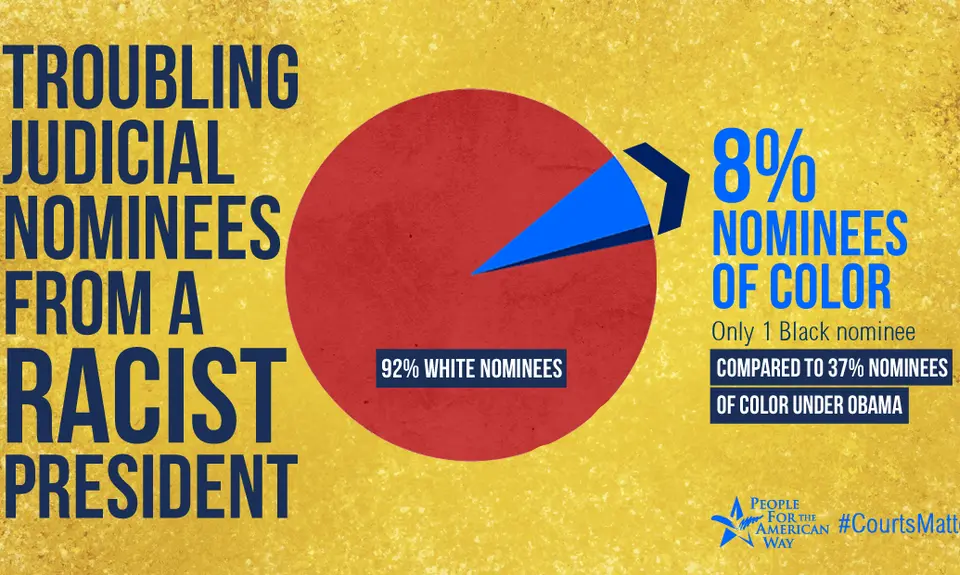Donald Trump’s racism has been clear since he launched his campaign for president. Now as president, he has had the power and opportunity to double down through destructive speeches and executive orders that imperil communities of color in America. What has been less examined are his judicial nominations—so far he has nominated 87 people, overwhelmingly white, with only five Asian Americans, one Latinx person, and one African American.
In The Progressive, PFAW Senior Director of Outreach and Public Engagement Diallo Brooks writes:
Below the radar of national news headlines, Trump is pushing judicial nominees with disturbing records on racial equity issues into lifetime positions as judges, an effort that will have ramifications in the lives of people of color long after he has vacated the Oval Office.
Brooks goes on to explain the histories of some of Trump’s worst judicial nominees on the issue of racial justice, including Thomas Farr, Kyle Duncan, and Gordon Giampietro.
Adding to the scope of the problem is that these are lifetime seats, meaning that Trump is remaking the judiciary with anti-racial justice nominees who could ultimately restrict people of colors’ access to justice for generations to come.
As Brooks notes,
The potential harm of these kinds of nominations is amplified by the fact that Trump has had an unusually high number of his nominees confirmed by the Senate.
Because the vast majority of court cases never make it to the Supreme Court, the final word on important legal questions about civil rights and racial justice is often left to lower courts. Unless Senators start doing the right thing and opposing these nominees, our lower courts will look very different very soon—in a way that will particularly harm communities of color for years to come.
Even more than through his words or policies, Trump’s legacy of racism may be most deeply—and permanently—manifested through his racist assault on the judiciary.
